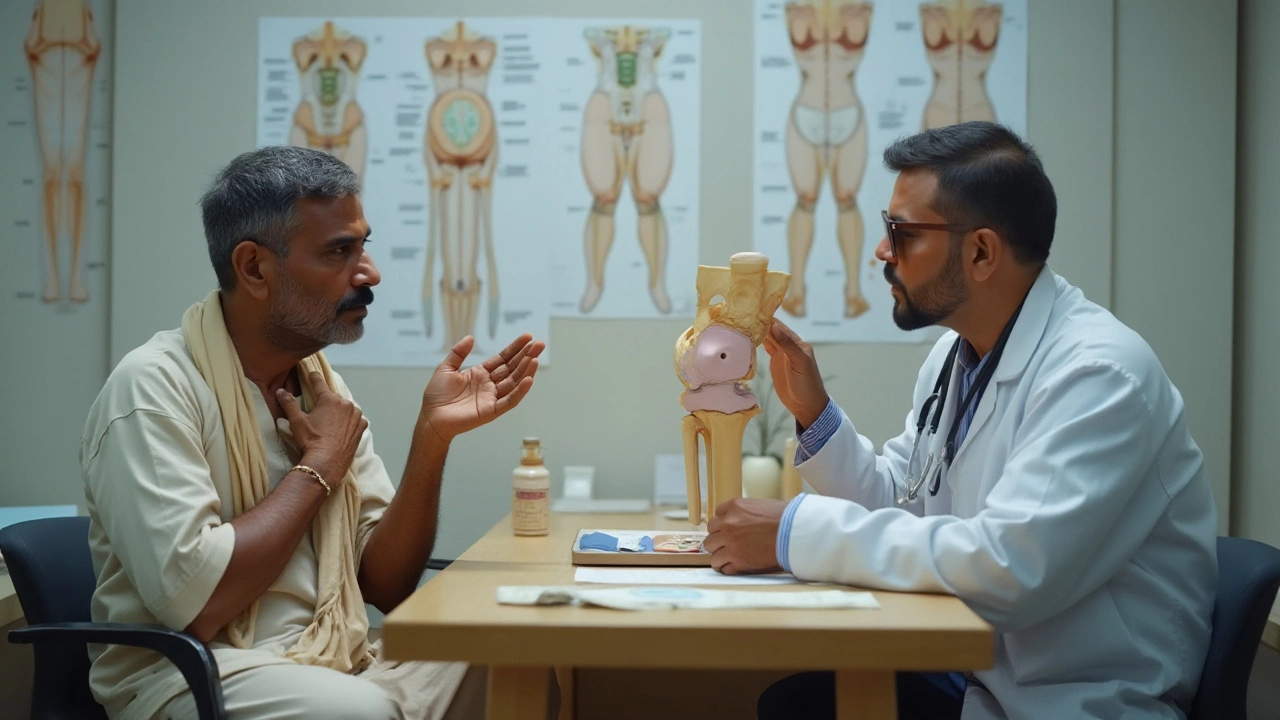Knee replacement surgery is a common procedure for alleviating chronic knee pain, but it isn't suitable for everyone. The surgery involves replacing damaged knee joints with artificial components, offering relief for many. However, certain individuals may face risks or complications that make them unsuitable for this procedure. This article explores who may not be an ideal candidate for knee replacement surgery, providing insights to help in making informed healthcare decisions.
Read MoreSurgery Candidates: What You Need to Know Before Going Under the Knife
Thinking about surgery can feel overwhelming. Whether it’s a bone operation, heart procedure, or a minor outpatient fix, the first question is always – am I a good candidate? This guide breaks down the basics so you can decide with confidence and avoid unnecessary stress.
How to Tell If You’re Ready for Surgery
Most doctors look at three things: your overall health, the severity of the problem, and how likely the surgery will improve your life. If you have uncontrolled diabetes, severe heart disease, or a weakened immune system, the risks go up. On the flip side, if the pain is constant, the joint is locked, or a tumor won’t shrink with medication, surgery often becomes the best option.
Ask yourself these quick checks:
- Do I understand why the surgery is recommended?
- Have I tried non‑surgical treatments (physiotherapy, meds, lifestyle changes) without success?
- Is my doctor confident that the benefits outweigh the risks?
- Do I have a support system for the recovery period?
If you answered yes to most, you’re probably a solid candidate. Still, the final call always comes from a specialist after a full exam and possibly some extra tests.
Questions to Ask Your Surgeon Before Signing Up
Walking into the appointment with a list of questions saves time and nerves. Here are the top ones most patients forget:
- What exactly will be done during the procedure?
- How long will the operation take and what type of anesthesia will I get?
- What are the most common complications for this surgery?
- What pain‑management plan will you use after I’m back home?
- When can I expect to return to work, exercise, and everyday chores?
- Are there any lifestyle changes I should start now to boost recovery?
Write down the answers or record the conversation. You’ll appreciate having the info later when you’re on the road to recovery.
While you’re there, bring a family member or friend. They can help catch details you might miss and give you moral support.
Preparing Your Body and Mind for a Smooth Recovery
Preparation starts weeks before the operation. Here are simple steps that make a big difference:
- Nutrition: Load up on protein, leafy greens, and vitamin C. A well‑fed body heals faster.
- Exercise: If your doctor says it’s safe, do light cardio and stretching. Strong muscles protect the surgical site.
- Quit smoking: Even a few cigarettes a day can double infection risk. Stop at least two weeks prior.
- Plan your home: Put essential items (meds, water, phone) within arm’s reach. Arrange help for meals and transport.
- Sleep well: Aim for 7‑8 hours a night to keep stress hormones low.
These habits cut complications and shorten the time you spend in the hospital.
Finally, stay realistic about pain. After bone surgery, you’ll feel soreness for a few days, but a well‑managed plan—including nerve blocks, oral meds, and gentle movement—keeps it in check. For heart surgery, a short stay in the ICU is normal, and most people leave the hospital within a week if they follow guidelines.
Remember, being a surgery candidate isn’t about being brave; it’s about being informed. Use the tips above, talk openly with your surgeon, and set up a solid support network. With the right prep, you’ll move through the operation and recovery smoother than you imagined.





